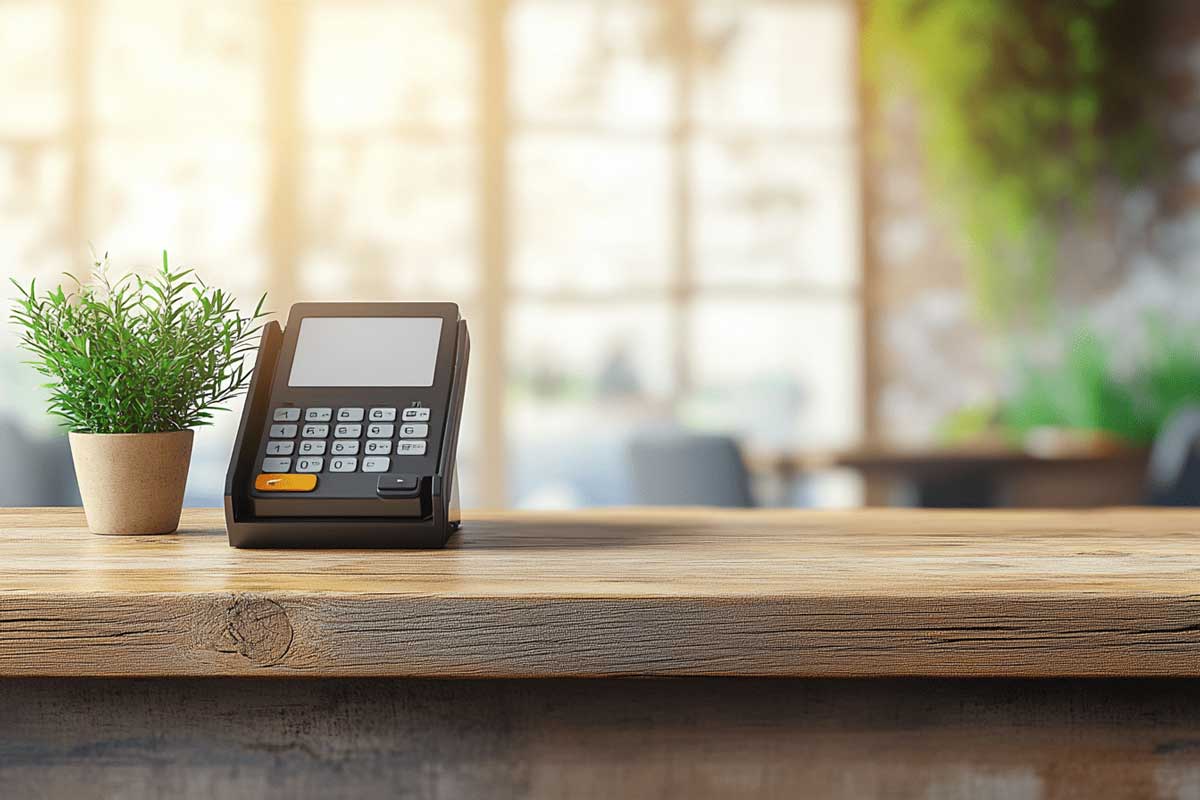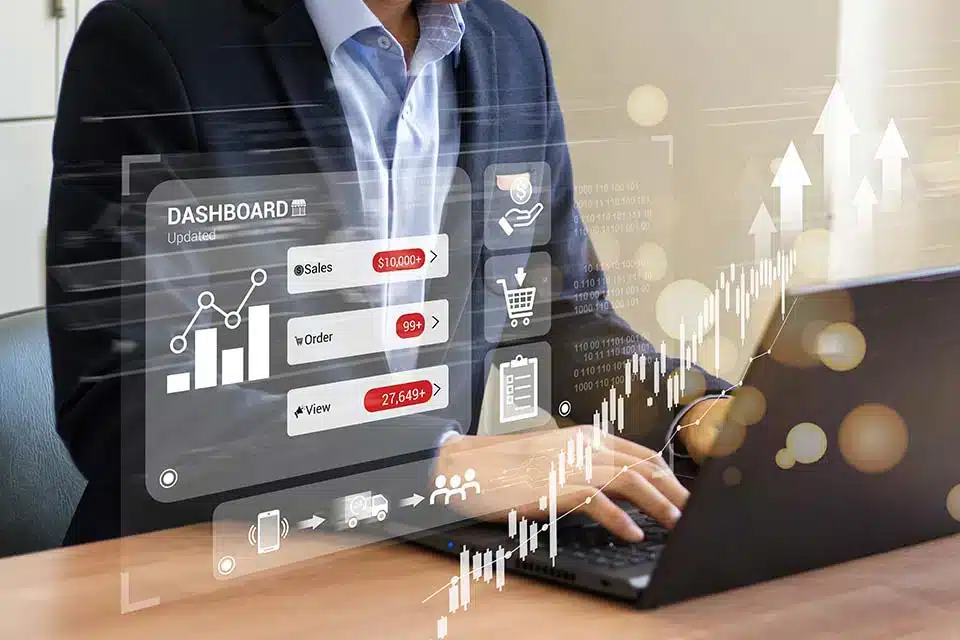The conversation surrounding point of sale systems used to be confined to the storefront, retail, restaurant and hospitality sector. Any and every business where a face-to-face customer was available and expected to pay for transformed goods and services had an urgent in-person cash flow need. Yet as the world turns to digital payments and transactions across every industry, service-based businesses and independent contractors are often invited to the cash collection mix. Whether you’re a plumber or an electrician, a landscaper or a maid, a consultant or working from home, the options to receive safe, expedited payments in real-time—once only available to storefronts—are now commonplace and necessary for business growth. For service contractors, a POS system can revolutionize how their businesses run, interact with customers and manage cash flow.
How POS Systems Expanded Beyond The Retail Sector
Point of Sale systems came about as a digital cash register to help merchants process sales in their physical location. Over time, systems evolved to include inventory software, sales and accounting applications, and storage for customer history. Recently, systems have expanded to be mobile and cloud-based, beyond the retail world. Where cash and checks posed as the primary payment options for service-based businesses—plumbers and electricians—in the past few years, with everyone now having access to credit cards as a mainstream accepted form of payment, adopting one of the best POS systems for contractors gives subcontractors a leg up on competition[1]. Merchant services recognize that independent contractors are a burgeoning niche in this broadening business landscape, and many platforms cater to that market with small business needs. Therefore, even the smallest of subcontractors who travel to different sites can take advantage of mobile capabilities typically only extended to merchants with physical storefronts.
Where Do Contractors Experience Payment Processing Issues?
Contractors do not function like retailers; there’s no storefront or home office where customers walk in and pay upon project completion. Payment is often done in the field by check or cash, some of the oldest and most cumbersome payment methods, for the contractor’s benefit. Cash can be stolen or accidentally dropped. Checks typically do not bounce, but they aren’t cashed for weeks after they are received, affecting a contractor’s cash flow almost immediately. In addition, positions with higher ticket averages—roofing, for example, or aggregate-inflated projects—attract more eyes from banks and processors viewing contractors as higher risk. Long payment processes, glitches and disputes with limited job flexibility are the byproduct of not having contemporary payment solutions. However, a POS system for contractors allows seamless processing, easy access, and the permanent ability to work with secure, on-the-spot and tracked payment options[2].
Why POS Systems Are Beneficial for Service Contractors
Why would a contractor need a POS system for their business? Because it revolutionizes how a contractor and customer interact. POS systems allow for immediate cash flow—contractors no longer need to wait weeks for a bank account to clear because payments can be processed at the point of service. Why give someone the option to write a check—which could bounce or get lost in the mail—even if it is made out to a said contractor, when a POS system could charge and process a payment on-site? Not only does it make the contractor’s life easier, but it makes a customer’s life easier, too; nobody wants to have to “wait” for a project to be “done” before knowing if their check has cleared. Additionally, having the option of a POS system grants multiple payment solutions—credit cards, digital wallets—and professional appurtenances that allow customers to view contractors as professionals in their field who are more likely to leave good reviews and second returns. Finally, many of the best POS systems for contractors have invoicing, reporting, and even financing options that allow contractors more control over their finances[3].
What Should Contractors Look for in a POS System?
Contractors should never assume a POS system is a POS system. Many payment-processing options may allow easy sales, but many are not befitting a mobile service-based business. Fee structure, hardware, and flexibility and scalability are a must. The hardware must be portable, ideally assessed through a smartphone or tablet, since this allows for on-site payment processing. The system should integrate into the contractor’s existing life—accounting, project management, etc. Price must be transparent, as they work off a reduced fee schedule and need to know what per-contract transaction will yield in expenses.
Where POS Systems Are Going for Service Based Businesses
The POS system will only become more integrated into operational protocol for contractors. For example, artificial intelligence can enable contractors to use past information to calculate revenue or client payment trends. In addition, with the future growth of blockchain, smart contracts can be created where predetermined payment information is included, releasing payment upon successful completion as opposed to contractors manually inputting payment to create a dispute. Finally, contactless payments—hand-held devices and QR codes—have taken off in retail and hospitality efforts but will transcend into personal services as well, allowing contractors to offer the same payment ease as retail clerks and restaurant waitstaff now provide[4]. Companies that buy in early for adoption will set themselves apart in competitive marketplaces.
Barriers Contractors Could Encounter in POS System Adoption
While many positives come from having a POS system, there are barriers to entry for contractors who want to adopt one. For example, hardware or subscription fees can be overwhelming for small startups. There is also a learning curve; for contractors who have yet to establish a digital footprint, the transition can be challenging. In addition, many high-risk categories, including construction, might find merchants unwilling to work with them regarding processing margins and required fees; thus, it’s essential to partner with the right merchant services provider. Through careful research and choosing the POS system that’s best for contractor needs, these barriers can be avoided.
Long-Term Benefits of POS for Contractors
When contractors use such systems correctly, they see long-term benefits around the corner. With consistent cash flow coming in, they can reinvest in tools, employees, and advertising more easily. Being more professional allows them to keep jobs and build trust with customers. Integrated accounting and reporting features ease tax filing when the time comes and ensure proper financial management[5]. Therefore, POS systems not only change how contractors get paid, but they also allow them to establish and maintain an effective business over time.
Core Features Service-Based Businesses Should Consider
Mobile Functionality
Most contractors are always on the run. A mobile POS can take payments anywhere, from their homes, businesses, or consultations. This feature aids cash flow and minimizes latency in receiving payment. Invoicing and Billing Invoicing is standard for any service-based endeavor. A POS that allows invoicing and tracking paid invoices integrates flow. Automatic billing avoids errors and provides the client with proper documentation of services rendered.
Scheduling Integration
Service contractors with multiple jobs understand the value of integration regarding scheduling. When the POS syncs with calendars and job schedule apps, payment occurs when services are rendered—no subsequent disputes or hours spent on administrative nonsense.
Customer Relationship Management
Repeat customers in service industries usually come from strong relationships, so a POS with customer relationship management capabilities is always good to have. A POS that maintains customer and job history allows contractors to reference the same information on repeat jobs or follow up better.
Financing and Payment Plan Options
Some service industries are big-ticket items, and the service contractors who can provide their clients with payment options win. When a POS system supports financing or payment plan options, it means that the contractor can close the deal on the first pitch while getting paid upfront.
Security Compliance
Service contractors may not believe they're at risk for fraud, but like all contractor professionals, they take sensitive payment information from their clients. POS systems that are PCI DSS compliant ensure the contractor is not liable while safeguarding the customer.
Beyond Credit Cards
Acceptance of credit cards is only the start; features are advantageous for the service-based contractor—that takes the POS beyond a credit card processor and turns it into an all-in-one business behemoth.
Why POS Systems for Contractors Need Merchant Services Providers
The best POS system for contractors needs a merchant services provider to process transactions and secure virtual payment agreements. Still, for service contractors, this is even more critical. Merchant services providers who cater to high-risk or highly mobile industries provide added benefits and products like chargeback mitigation, fraud prevention features, and recurring billing. Thus, service contractors must evaluate their merchant services provider carefully, ensuring they assess not only the technology but also customer support and contingencies. A merchant services provider becomes an invisible partner in the success of the service contractor, minimizing payment interruptions while ensuring business continuity.
Cost Factors Involved for Contractors
Contractors always have to think about cost when it comes to new tools, and POS systems are no different. POS systems include hardware costs, software subscription costs, and transaction processing fees. Assessing which is best for the contractor relies upon the type and size of the business. For example, a contractor who charges a low, flat fee with occasional work might appreciate flat-rate processing; however, a contractor who processes payment on various incidental jobs with higher pricing might pay more in interchange-plus payment processing. Finding a fixed cost option with transparent fees is also important—contractors do not want to work with a provider who hides detailed fees in the fine print of a lengthy contract. Therefore, calculating costs against time savings with an expected decrease in payment timing can assess true ROI.
Frequently Asked Questions
Q: Do all contractors need a POS?
A: Most contractors don’t need a POS per se, but most contractors can benefit from applying. Having the ability to charge someone on-site and provide electronic receipts increases efficiency for both the customer and the contractor.
Q: Why will a POS system help improve customer trust for contractors?
A: A POS system makes them look more professional and legit. Customers like it when their sensitive material is run through a system that offers on-the-spot receipts and accounting access while allowing multiple avenues for payment.
Q: Are POS systems too expensive for service-oriented businesses?
A: The cost of a POS system varies from company to company. However, most service-oriented POS systems are made with affordability in mind. Any added processing fees are made up with decreased payroll hours spent on invoicing and accelerated payment turnaround.
Q: Will POS systems sync with project management applications?
A: POS systems will sync with job scheduling, accounting, and project management systems, as those are the most beneficial features to help contractors remain organized.
Q: What is the merchant services provider’s role in contractor POS systems?
A: The merchant services provider is responsible for allowing a contractor to accept credit cards, ensuring compliance with local laws, and advocating for the contractor regarding chargebacks and fraudulent transactions. Choosing the right merchant services provider is essential to success.
Sources
- NerdWallet. “Best POS Systems for Small Businesses.” Accessed August 2025.
- CardFellow. “What Is a Merchant Services Provider?” Accessed August 2025.
- Investopedia. “Point of Sale (POS) Explained.” Accessed August 2025.
- FIS Global. “Mobile Point of Sale: Empowering Businesses on the Go.” Accessed August 2025.
- Visa. “Payment Technology Solutions for Businesses.” Accessed August 2025.











